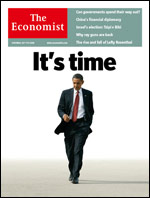Interesting essay on Strategic News Service.
A new generation is about to seize the reins of history: the Millennial generation. Born between 1978 and 2000, the Millennials currently include 95 million young people up to 30 years of age – the biggest, most diverse age cohort in the history of the nation. In 2016, they will be 100 million strong and positioned to dominate the American political scene for 30 to 40 years.
The Millennial generation has already begun to emerge as a powerful political and social force. They are smart, well-educated, open-minded, and independent – politically, socially, and philosophically. They are also a caring generation, one that is ready to put the greater good ahead of individual rewards. And they are already spearheading a period of sweeping change.
For our new book, Generation We: How American Youth Are Taking Over America and the World Forever, Eric Greenberg sponsored a major research study into the characteristics of the Millennial generation. It was conducted by Gerstein | Agne Strategic Communications, one of the most respected research organizations in the U.S., and included both extensive oral and written surveys and a series of in-depth focus groups. The Greenberg Millennials Study (GMS) offers the most detailed portrait available of the attitudes and values of today’s youth, and we’ve supplemented it with extensive research into other indicators of the behaviors and beliefs of the Millennials.
The GMS began with an in-depth national survey of 2,000 individuals of mixed gender, aged 18 to 29, conducted from July 20 to August 1, 2007. The study also included a series of 12 geographically and demographically diverse focus groups, conducted during the first week of December 2007. Each group focused on a particular demographic subset of the Millennial generation.
Taken together, the 12 focus groups captured a unique cross-section of various slices of the Millennial pie and provided some vivid personal stories and testimony to flesh out the more general observations made possible by the broader survey.
This research revealed that the Millennials are very different from Baby Boomers and Gen-Xers, and are now creating a new politics in America.




